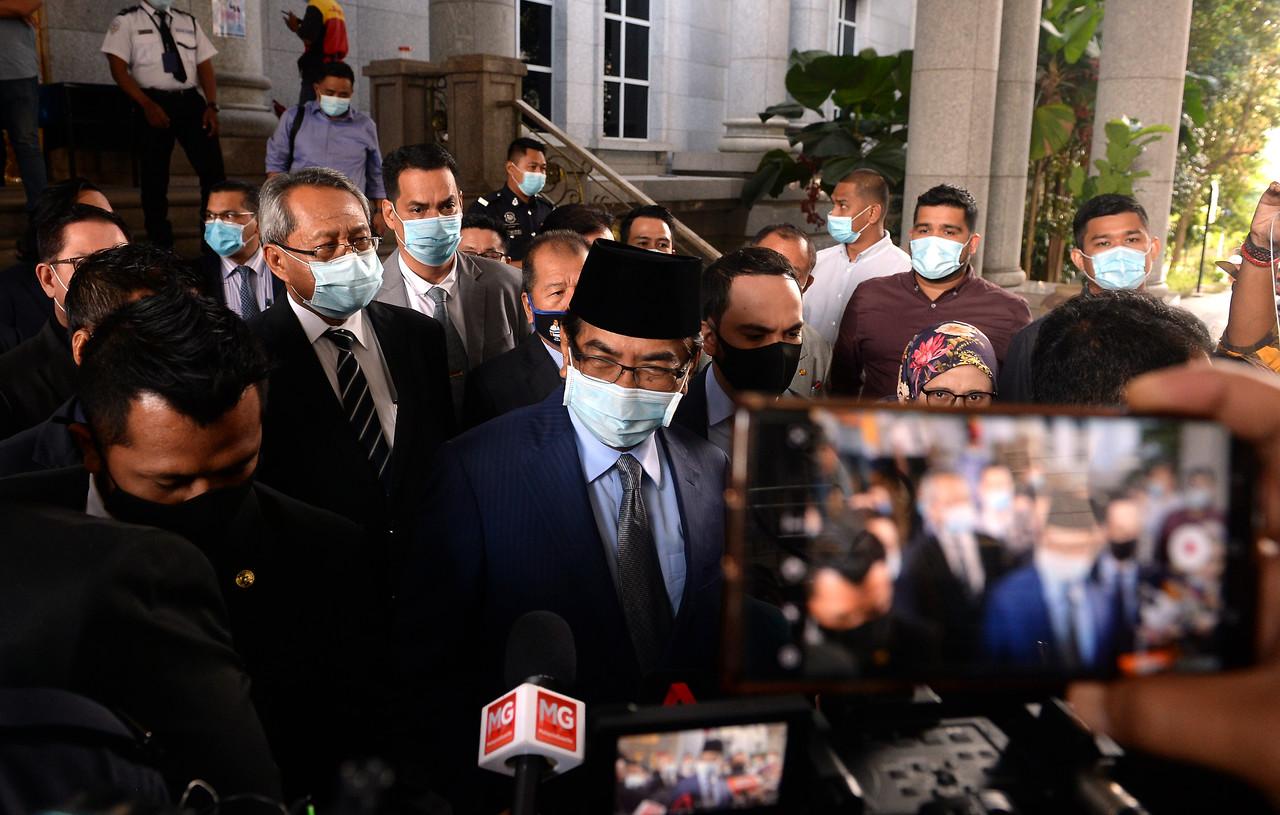Down but not out, Musa may be eyeing bigger prize in Sabah
The former chief minister is widely regarded as a strongman despite being locked out of the Sabah polls.
The possibility of former Sabah chief minister Musa Aman becoming the state’s next Yang di-Pertua, or governor, remains a theory for now but one that is being taken seriously by his political enemies.
If true, it would prove disastrous for Shafie Apdal even if he makes a comeback, although it might be welcomed as sweet revenge for Musa’s supporters.
Speculation grew in intensity after nominations closed on Sept 12 with Musa’s name nowhere in sight.
But the 69-year-old, who was chief minister for 15 years before Sabah’s familiar story of party-hopping kept him from forming the government again after the 2018 polls, is known as a political fighter.
“He is not someone who is willing to go down without a fight, especially as he has been acquitted of the corruption charges which were earlier seen as a stumbling block in his quest to return to power,” a former confidante told MalaysiaNow on the campaign trail in Kota Kinabalu.
The position of the governor is similar to that of the Malay rulers. He too sits with the Conference of Rulers, but he cannot be in the running to become the Agong.
According to the Sabah constitution, the governor is appointed for a term of four years but may be removed from office with a two-third majority in the state assembly and the consent of the Agong.
Short-lived victory
Musa, who is of Pakistani, Malay and Dusun heritage, was a businessman before entering the political arena, and was already heading large companies in the Borneo state in his 20s. His ascent of the political ladder was swift following Barisan Nasional’s (BN) capture of Sabah in 1995.
He was also one of only three BN state chiefs who managed to fend off Pakatan Harapan’s (PH) onslaught in the 2018 election, gaining the support of 31 of the 60 state assemblymen at the time and clinging on to power despite the formidable charge of the Warisan-led coalition.
But Musa would soon find himself booted out following defections from five Upko representatives, just 48 hours after he was sworn in by governor Juhar Mahiruddin.
Juhar declared at the time that Shafie had the majority to form the government.
The move sparked constitutional questions, with Musa taking Juhar and Shafie to court. What followed weeks after, though, would change his political fortunes.
Musa left the country to seek medical attention, even as authorities declared him a wanted person in a series of corruption investigations.
Upon his return in late 2018, he was charged with 46 counts of corruption and money-laundering, allegedly committed about a decade ago.
His acquittal of all 46 charges in June this year led to speculation of his return along with that of Umno in the state, where assemblymen are known for their short-lived party loyalties.
His absence from the nomination list, far from spelling doom for his political career, has sparked talk that he is being groomed for something bigger.
“Musa, in many ways, is a strongman that Sabah has not had for a long time,” a former Umno assemblyman said.
“The rotation of chief ministers in the past to sooth various ethnic groups failed to bring about such a leader, but Musa managed to remain for 15 years.”
CMs who become governors
But does Musa’s strongman image mean that Sabah will tread the same path as Sarawak where Abdul Taib Mahmud, the state’s longest serving chief minister, was also proclaimed governor?
Even in Sabah, there is no need to look far for precedents – four of Sabah’s 10 governors once served as chief ministers: Mustapha Harun, Fuad Stephens, Mohammad Said Keruak and Sakaran Dandai.
Given these examples, the prospect of Musa becoming governor as well seems likely, especially since he has been acquitted of the graft charges against him.
This would mean sweet revenge against Juhar, who has been governor for almost two decades.
The bad blood between the two is a matter of public knowledge. Juhar has twice blocked Musa’s political ambitions: once after the 2018 polls when he appointed Shafie as chief minister, and again when he agreed to dissolve the state assembly despite Musa’s claim of possessing the majority support.
For now, Musa’s rise to the throne of Sabah is only speculation.
“But it’s a believable one,” said a Sabah leader aligned with Perikatan Nasional, “not only in the context of Sabah’s colourful partisan politics, but also in the new normal of the national political landscape.”
Subscribe to our newsletter
To be updated with all the latest news and analyses daily.
